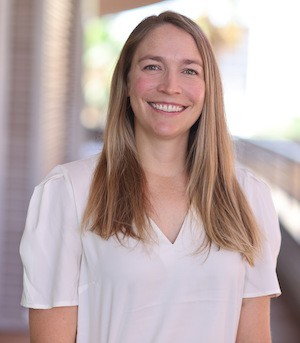
Education
- Ph.D. Psychology, Minor in Curriculum & Instruction, The Pennsylvania State University, 08/2017
- B.S./M.S. Psychology/Experimental Psychology, Saint Joseph's University, 05/2011
Postdoctoral Training
- Postdoctoral Teaching Fellow, University of Southern California, 08/2021 - 08/2022
- Postdoctoral Fellow, University of Maryland, 08/2019 - 08/2021
- Postdoctoral Fellow, Temple University, 06/2017 - 07/2019
Summary of Research Interests
My research interests are three-fold. First, I examine basic cognitive developmental processes that facilitate science, technology, engineering, and mathematics (STEM) learning, such as spatial cognition (e.g., our ability to mentally visualize and rotate objects and scenes). Second, I focus on designing, implementing, and evaluating cognitive interventions that are intended to advance educational STEM outcomes by enhancing students’ foundational cognitive processes. I am especially interested in employing new technologies as an intervention platform. For example, how does the efficacy of mobile technology (e.g., educational apps) compare to traditional, concrete materials in facilitating young children's STEM learning, especially among under-resourced preschoolers? Third, I focus on the diversity of individual learners and their environment to contextualize these learning processes. Specifically, I focus on individuals’ qualities (e.g., talents and interests) as well as varying group identities and experiences (e.g., gender, race, ethnicity, nationality, immigrant status, economic resources).
Grants
- Blocking Out Time for Early STEM Play: Bridging Homes, Schools, and Communities, CSULA Provost SEED grant, Role: PI, 08/2024 - 08/2025
- Using Educational Technology to Examine the Influence of Sociocultural Values and Family Socioeconomic Status on Preschoolers’ STEM School Readiness Skills, APA Division 15, Educational Psychology, Early Career Research Award, Role: PI, 08/2022 - 08/2024
- The Science Faculty for Inclusive Excellence and Transformation, Howard Hughes Medical Institute, USE Inclusive Excellence Grant, Role: Ad hoc co-PI (starting 8/2022)
Selected Publications (*indicates mentee)
- Bower, C., Mix, K. S., Hancock, G. R., Yuan, L., & Smith, L. B. (2024). Smart errors in learning multidigit number meanings. Journal of Cognition and Devleopment.
- Bower, C. & Liben, L. S. (2023). Instructors' gestural accuracy affects geology learning in interaction with students' spatial skills. Journal of Intelligence.
- Bower, C., Mix, K. S., Yuan, L., & Smith, L. (2022). A network analysis of children’s emerging place value concepts. Psychological Science. doi: 10.1177/09567976211070242
- Mix, K. S., Bower, C., Hancock, G., Yuan, L., & Smith, L. (2022). The development of place value concepts: Approximation before principles. Child Development, 93, 778-793. doi: 10.1111/cdev.13724
- Bower, C., Zimmermann, L., Verdine, B., Pritulsky, C., Golinkoff, R. M., & Hirsh-Pasek, K. (2022). Enhancing spatial skills of preschoolers from under-resourced backgrounds: A comparison of digital app vs. concrete materials. Developmental Science, 25, 1-9. doi: 10.1111/desc.13148
- Bower, C., Foster, L., Zimmermann, L., Verdine, B., Marzouk, M., Islam, S., Golinkoff, R. M., & Hirsh-Pasek, K. (2020). Three-year-olds’ spatial language comprehension and links with mathematics and spatial performance. Developmental Psychology, 56, 1894-1905. doi: 10.1037/dev0001098
- Bower, C. & Liben, L. S. (2020). Can a domain-general spatial intervention facilitate children’s science learning? A lesson from astronomy. Child Development, 92, 76-100. doi: 10.1111/cdev.13439
- *Pritulsky, C., Morano, C., Odean, R., Bower, C., Hirsh-Pasek, K., & Golinkoff, R. M. (2020). Spatial thinking: Why it belongs in the preschool classroom. Translational Issues in Psychological Science, 6, 271-282. doi: 10.1037/tps0000254
- Bower, C., Odean, R., Verdine, B., Medford, J. R., Marzouk, M., Golinkoff, R. M., & Hirsh-Pasek, K. (2020). Associations of 3-year-olds’ block-building complexity with later spatial and mathematical skills. Journal of Cognition and Development, 21, 383-405. doi: 10.1080/15248372.2020.1741363
- Bower, C., Zimmermann, L., Verdine, B., Toub, T. S., Islam, S., Foster, L., Evans, N., Odean, R., Cibischino, A., Pritulsky, C., Golinkoff, R. M., & Hirsh-Pasek, K. (2020). Piecing together the role of a spatial assembly intervention in preschoolers’ spatial and mathematics learning: Influences of gesture, spatial language, and socioeconomic status. Developmental Psychology, 56, 686-698. doi: 10.1037/dev0000899
Classes Taught
- PSY 3040 Research Methods in Psychology (undergraduate)
- PSY 4120 Psychology of Human Development: Infancy and Childhood (undergraduate)
- PSY 5110 Developmental Psychology Seminar (graduate)
Laboratory
Child Development and Learning Lab (KH D3073)